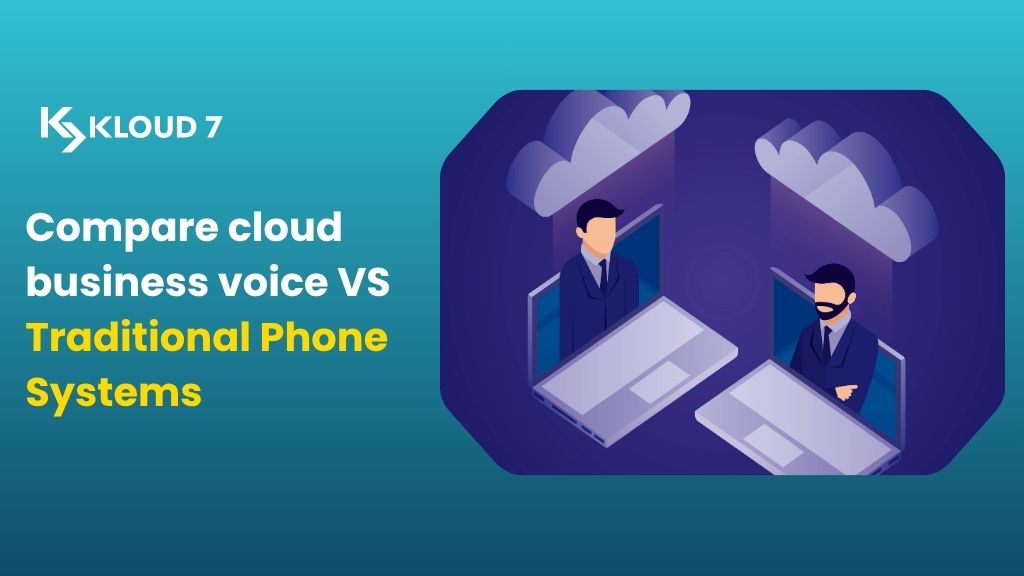In today’s hyper-connected business environment, communication is more than just making and receiving calls. It’s about flexibility, scalability, and cost efficiency. This is where cloud business voice services have rapidly gained traction, revolutionizing the way companies communicate internally and externally.
Unlike traditional phone lines, cloud-based solutions integrate advanced technologies such as VoIP phone systems, hosted voice solutions, and cloud telephony to deliver seamless communication from anywhere, at any time. Whether you run a small startup or a large enterprise, understanding the business phone system comparison between cloud and traditional setups can help you make smarter decisions for your organization.
What Are Cloud Business Voice Services?
Cloud business voice services are modern telephony solutions that deliver voice communication over the internet rather than through physical copper lines or PBX systems. These services are hosted in the cloud, meaning: no bulky on-premise hardware is required, calls can be made and received from any internet-enabled device, and maintenance, security, and updates are handled by the service provider.
Key Features of Cloud Business Voice:
- VoIP calling and conferencing
- Auto attendants and IVR menus
- Call forwarding and routing
- Integration with CRMs and business tools
- Scalability with pay-as-you-go models
- Remote team support
Cloud telephony isn’t just a replacement it’s an upgrade designed for the modern workplace.
What Are Traditional Phone Systems?
Traditional phone systems rely on Public Switched Telephone Network (PSTN) or Private Branch Exchange (PBX) technology. These systems require physical phone lines, in-office hardware installations, regular maintenance, and have limited mobility.
Typical Features of Traditional Phone Systems:
- Basic calling functions (hold, transfer, voicemail)
- Limited conference calling
- Fixed-line connectivity
- High upfront and ongoing maintenance costs
While traditional systems have served businesses for decades, their limitations are becoming increasingly evident in a digital-first world.
Cloud Business Voice Services vs Traditional Phone Systems: A Detailed Comparison
To make the best choice for your business, here’s a side-by-side comparison of cloud business voice services and traditional phone systems:
| Feature | Cloud Business Voice Services | Traditional Phone Systems |
| Infrastructure | Hosted in the cloud, minimal hardware | Physical PBX systems, copper lines |
| Setup Cost | Low or no upfront costs | High installation costs |
| Maintenance | Handled by the provider | In-house IT required |
| Scalability | Easy to add or remove lines instantly | Requires additional hardware and wiring |
| Flexibility | Accessible from any device, anywhere | Office-bound |
| Features | Advanced: VoIP, IVR, call routing, integrations | Limited: Basic calling features |
| Mobility | Perfect for remote and hybrid teams | Fixed office setup only |
| Cost Over Time | Subscription-based, predictable billing | Expensive maintenance and upgrade cycles |
| Disaster Recovery | Built-in redundancy and failover systems | Single point of failure |
| Integration with Other Tools | Seamless integration with CRMs, helpdesks, and AI tools | Very limited or none |
The Rise of VoIP Phone Systems and Hosted Voice Solutions
At the core of cloud business voice services is VoIP (Voice over Internet Protocol) a technology that transmits voice calls through the internet. This innovation has transformed how businesses manage their communication.
Advantages of VoIP Phone Systems:
- 🌐 Global Reach: Make and receive calls from anywhere with an internet connection.
- 🧭 Advanced Features: Video calls, voicemail-to-email, and AI call analytics.
- 💰 Cost Savings: Eliminate expensive landline bills.
- 🧰 Integration: Syncs with CRM platforms like Salesforce or HubSpot.
Hosted voice solutions further simplify the process by allowing service providers to manage everything on your behalf. No in-house maintenance, no complex setups just reliable communication.
Why Businesses Are Switching to Cloud Telephony
The demand for cloud telephony has surged as more companies adopt remote and hybrid work models. Unlike legacy systems, cloud voice enables flexibility without compromising on quality or security.
Top Benefits:
- Remote Work Enablement: Employees can work from anywhere and stay connected.
- Automatic Updates: No need to manually upgrade systems.
- Lower Total Cost of Ownership: No expensive hardware, less IT involvement.
- Enhanced Customer Experience: Faster response times and intelligent routing.
This shift isn’t just about saving money it’s about future-proofing your communication infrastructure.
Common Challenges and How to Overcome Them
While cloud business voice services bring significant benefits, businesses may face a few common challenges:
- Internet Dependency – Solution: Invest in a strong, stable internet connection and a backup plan.
- Security Concerns – Solution: Use providers with end-to-end encryption and advanced authentication protocols.
- User Adoption – Solution: Offer training and onboarding sessions to employees.
- Integration Complexity – Solution: Choose a service provider with easy-to-use APIs and native integrations.
With the right strategy, these challenges are easy to mitigate.
Best Practices for Implementing Cloud Business Voice Services
If you’re ready to make the switch, follow these best practices for a smooth transition:
- 📝 Assess Your Current System: Identify gaps and required features.
- 📡 Choose the Right Provider: Look for reliability, scalability, and strong security protocols.
- 🧭 Plan Your Rollout: Start with a pilot team, then scale organization-wide.
- 🧑💻 Train Your Team: Ensure employees are comfortable using new tools.
- 🔄 Monitor and Optimize: Regularly track call quality, uptime, and feature usage.
Cost Analysis: Cloud Voice vs Traditional Systems
One of the biggest advantages of cloud business voice services is cost efficiency. Here’s a simplified example:
| Cost Factor | Cloud Voice | Traditional Systems |
| Upfront Hardware | $0–$500 | $5,000+ |
| Monthly Maintenance | Included | $500+ |
| International Calls | Low/Free VoIP | High PSTN rates |
| System Upgrades | Automatic | Manual, expensive |
| Average Annual Cost | $1,200–$2,400 | $8,000+ |
Future Trends in Business Telephony
The future of business communication is undoubtedly cloud-based. Here’s what to expect:
- AI-Driven Call Analytics: Intelligent transcription, sentiment analysis, and insights.
- 5G Integration: Even more reliable and faster voice connections.
- Unified Communications Platforms: Seamless voice, video, and messaging in one interface.
- Enhanced Security Layers: Zero-trust architectures for sensitive conversations.
Adopting cloud business voice services now positions your organization ahead of the curve.
FAQs
1. What are cloud business voice services?
Cloud business voice services are internet-based communication solutions that replace traditional phone lines, offering features like VoIP calling, virtual receptionists, and real-time analytics.
2. How are cloud business voice services different from traditional phone systems?
Unlike traditional PBX setups, cloud systems use internet connectivity, require no heavy hardware, and provide advanced features like CRM integration and global accessibility.
3. Are VoIP phone systems reliable for business use?
Yes. Modern VoIP phone systems are extremely reliable, with built-in redundancy and high uptime when paired with stable internet connections.
4. How much do hosted voice solutions typically cost?
Most hosted voice solutions follow a monthly subscription model, often between $20 and $50 per user per month—far less than maintaining traditional lines.
5. Is cloud telephony secure?
Yes. Leading providers offer end-to-end encryption, secure protocols, and compliance with international standards like GDPR and HIPAA.
Conclusion
As businesses evolve, so must their communication systems. Cloud business voice services offer a powerful alternative to traditional phone setups, delivering flexibility, cost savings, advanced features, and scalability that legacy systems simply can’t match. Whether you’re a small business or a growing enterprise, making the switch to VoIP phone systems, hosted voice solutions, and cloud telephony can future-proof your communication strategy and position your company for long-term success.
Ready to modernize your business communication? Explore our cloud business voice solutions today and discover how we can help you simplify, scale, and save.




